Resolved: There’s no better time to introduce students to the life-changing experiences and skills of civil discourse than when they first arrive on campus.
On August 24 the College Debates & Discourse Alliance team traveled to Washington and Lee University (Lexington, Virginia) and Juniata College (Huntingdon, Pennsylvania) to integrate our programming into full-scale freshman orientation events.
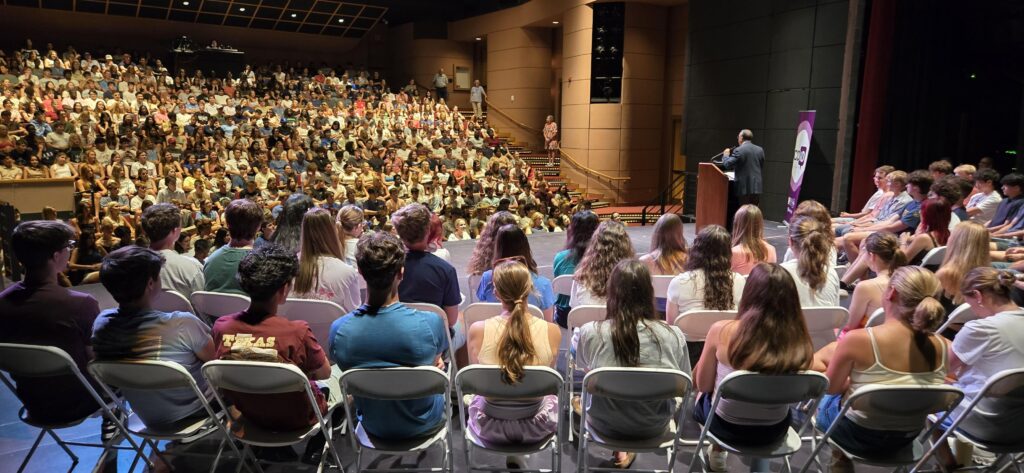
At W&L, Sadie Webb and Wm. Bryan Paul joined me in leading three Braver Campus Dialogues for 500+ incoming freshmen. That same day at Juniata, our colleague Mae Rum partnered with Derek James, Juniata’s Dean of Equity, Diversity and Inclusion, to lead Braver Angels Debates for 300+ first-year students.
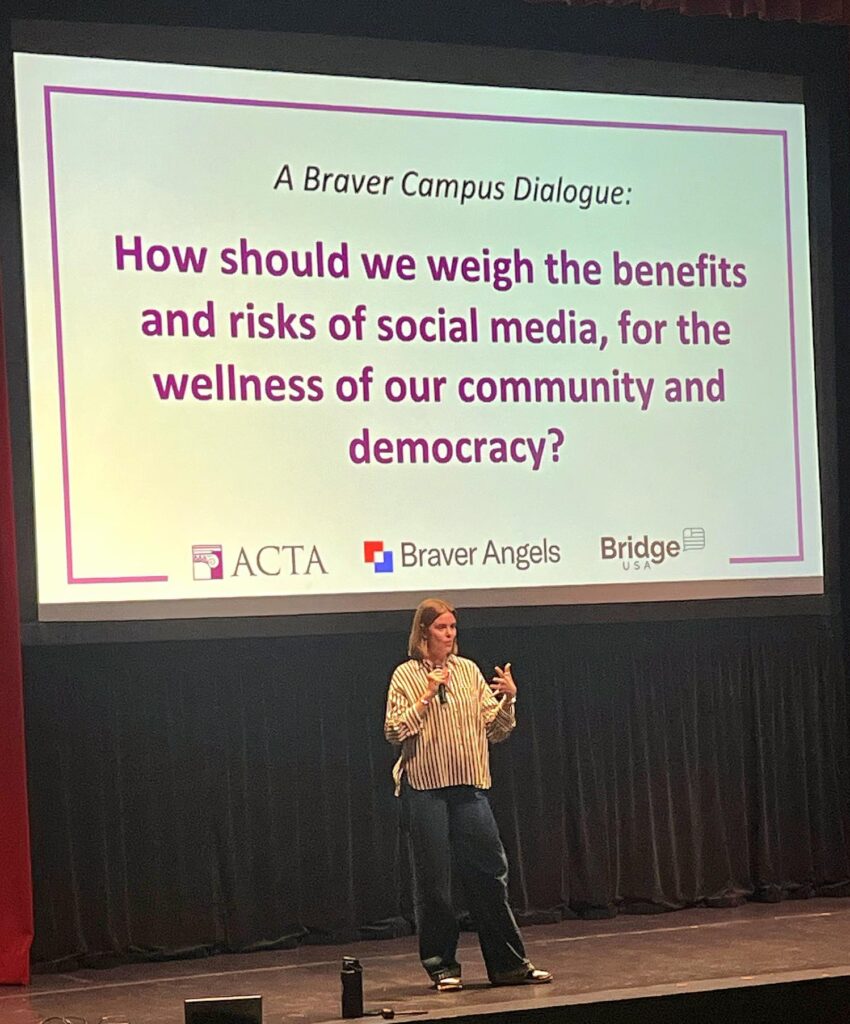
Both orientation events were exhilarating from start to finish. The most inspiring ingredient was the courage and energy of the students. They dove with passion into nuanced, personal exchanges around complex topics that affect us all.
In the three auditoriums at W&L (each packed with 175 freshmen), the students tackled the question “How should we weigh the benefits and risks of social media, for the wellness of our community and democracy?”
At Juniata, they debated on the pressing topic, “Does artificial intelligence do more harm than good?”
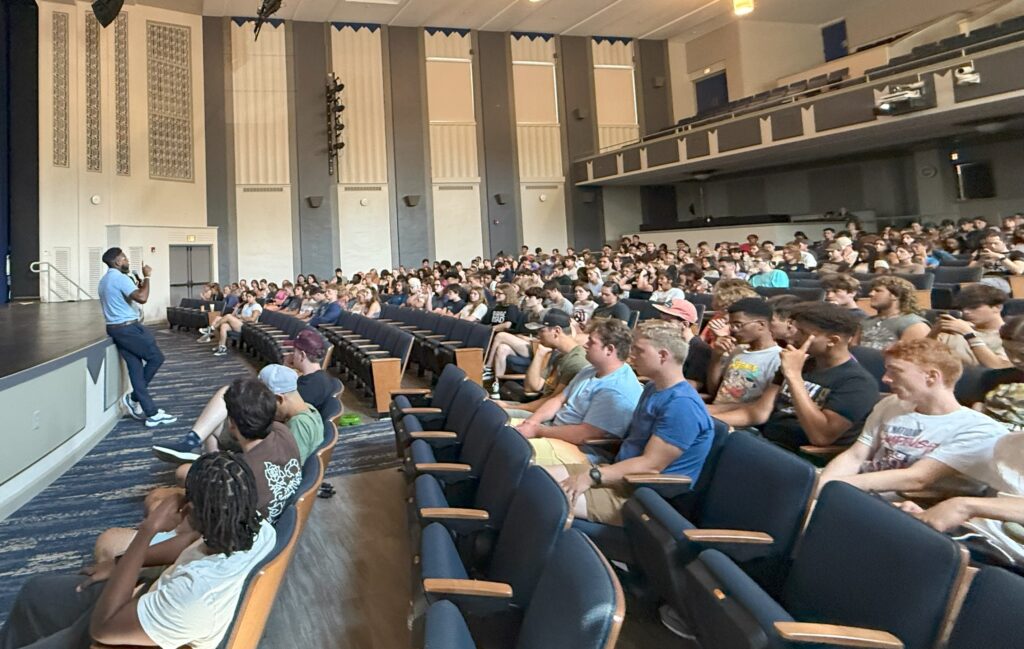
The students in my room, fresh out of high school, were thoughtful, persuasive, curious, highly engaged and respectful toward each other. This has been evident throughout the four years since we first started integrating into freshman orientation programs at the request of institutions including Duke University, Denison University, The University of Dallas, and Hamilton College.
In the main auditorium at W&L where 500+ freshmen students gathered to kick off their freshman orientation, Professor Lucas Morel, head of the university’s Political Science Department, stepped up to the podium. Addressing the freshmen assembled on the first day of their college journey, he said:
“Your intellectual diversity is what W&L desires most, because it serves a higher purpose. And that is the pursuit of truth, and the gaining of knowledge and skills about the world and community in which you live. Without your intellectual pluralism, we professors could not do our jobs well. Here is where you should expect to learn, practice, and grow in Civil Discourse.
“ ‘Discourse’ simply means conversation, so civil discourse is concerned with how we speak to each other as we pursue the truth as a community. Expect of yourself, and encourage in your classmates, a manner of speaking and listening to one another with respect, and the presumption of good faith. Intellectual pluralism—diverse thinking and speaking about important topics—won’t be productive if you don’t develop the patience and discipline to hear each other out, to do the hard work of listening to opposing views.”
Intellectual pluralism—diverse thinking and speaking about important topics—won’t be productive if you don’t develop the patience and discipline to hear each other out, to do the hard work of listening to opposing views.
Dr. Lucas Morel, Political Science Department Head, Washington and Lee
Remarks from Faculty and Staff
“Collaborative W&L University colleagues in our Student Affairs and Academic Affairs offices ensured that all first-year students could experience a lively Braver Campus Dialogue. This initiative will lead to more inquiries from our faculty about new civil discourse programming that they can utilize in their classrooms.” – Leslie Wingard-Cunningham, Professor of English and Africana Studies, Associate Provost for Faculty Development, Washington and Lee University
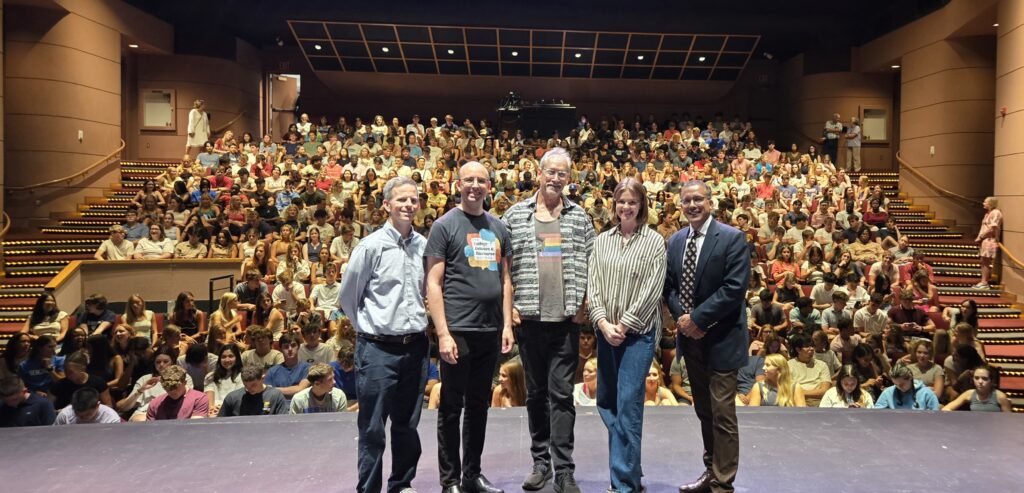
“Our first-year students always state how much their idea of debate was turned on its head. They expect a more contentious argument and get a good discussion. During the debrief, one student stated how much they appreciated the directionality of the questions. Asking the chair diffuses contention.
As someone who knows some of our students who have disabilities, and who are neurodivergent… They felt comfortable in speaking out, sitting up front, and using their voice. One particular student was lost for words, and the snaps and stomps helped. The Braver Angels / CD&D model seems to be a place where all students feel included.” – Derek A. James, Dean of Equity, Diversity, & Inclusion, Juniata College
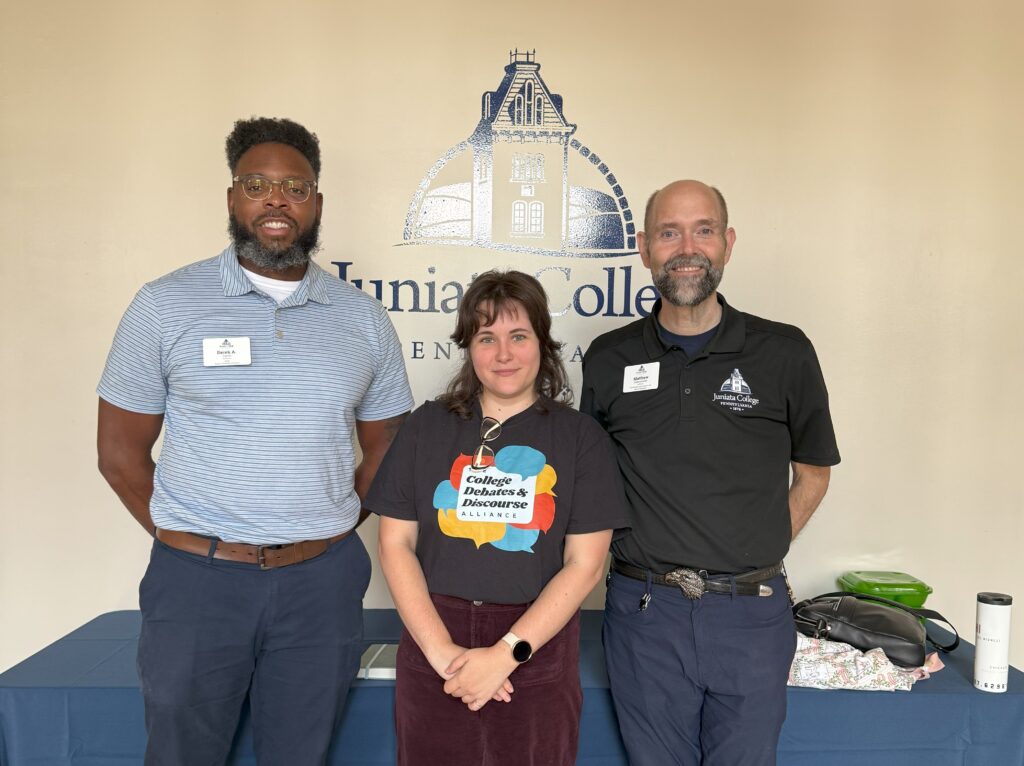
Doug Sprei is VP of Campus Partnerships and Director for the College Debates and Discourse Alliance.
WHO WE ARE
Launched in 1995, we are the only organization that works with alumni, donors, trustees, and education leaders across the United States to support liberal arts education, uphold high academic standards, safeguard the free exchange of ideas on campus, and ensure that the next generation receives an intellectually rich, high-quality college education at an affordable price.
Discover MoreSTAY INFORMED
Sign up to receive updates on the most pressing issues facing our college campuses.